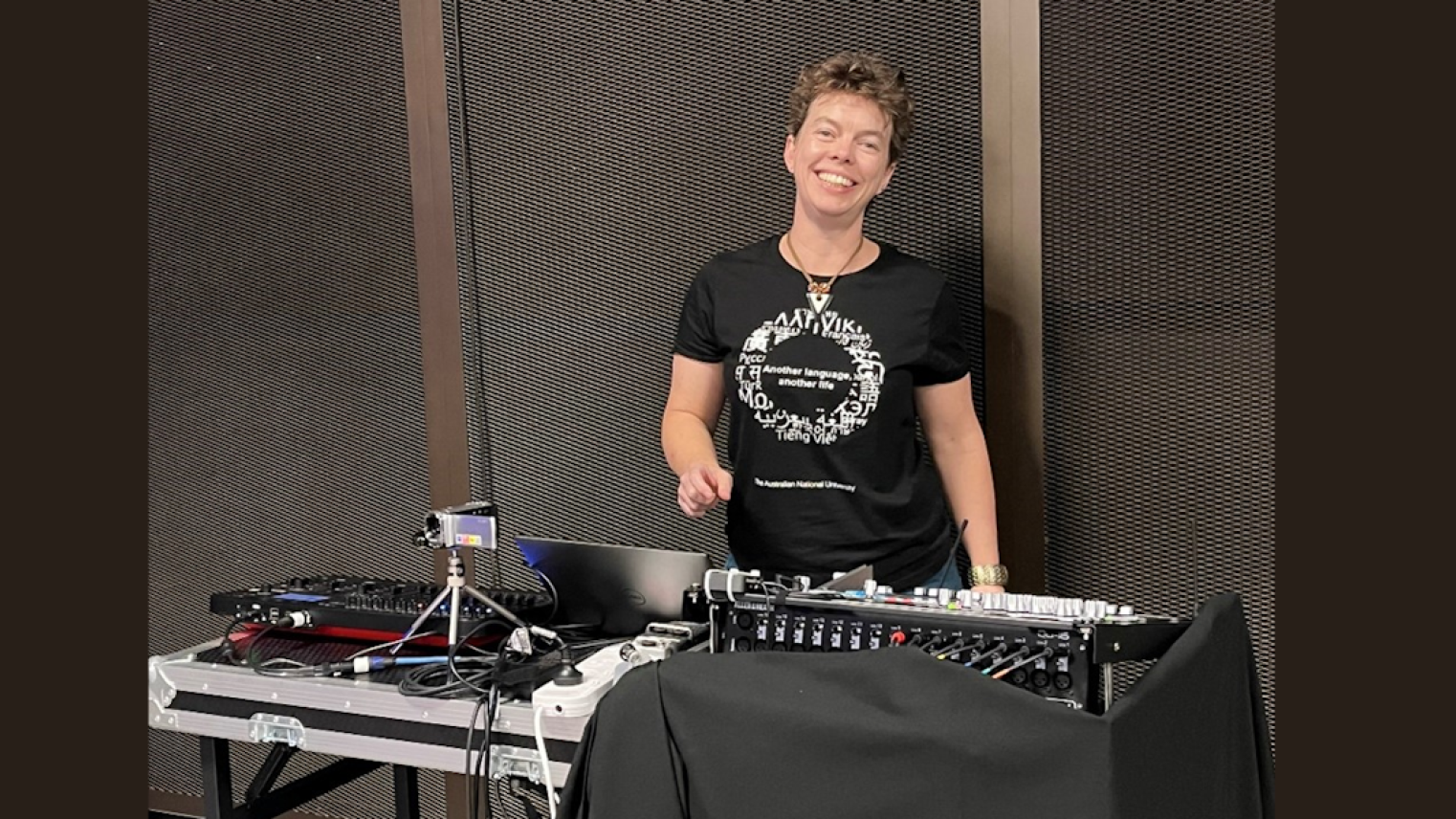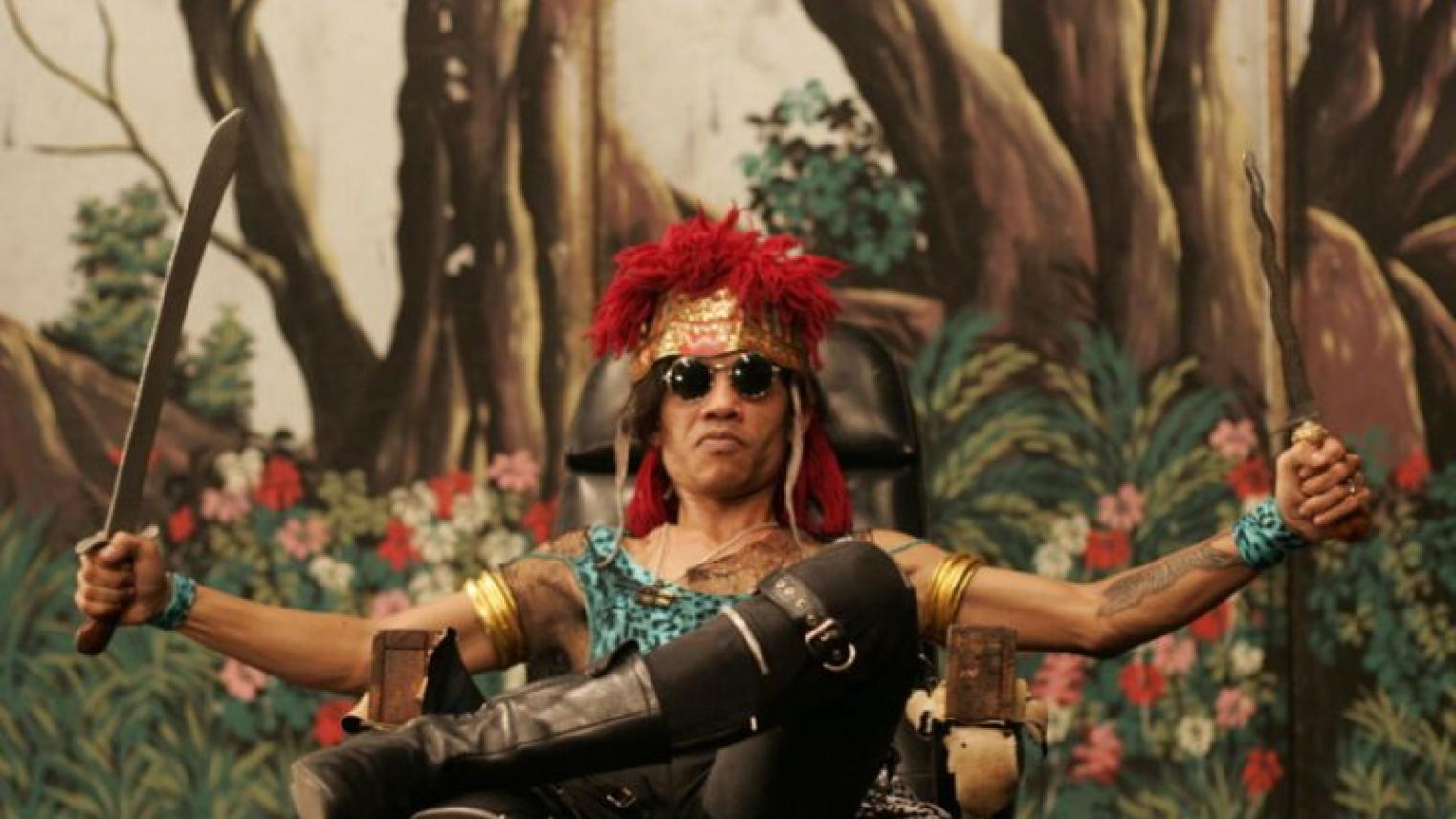The Indonesian Connection: Meet Elly Kent

Learning is all about connections, and through our connections with unique people we are able to gain a true understanding of the world around us. — Peter Senge
And when it comes to connection, Elly Kent’s bond with Indonesia is not new. In fact, studying and living in Asia was a formative part of Elly’s childhood. When she was just 5 years of age, her father began working on an aid project in the Philippines, so she spent 18 months in Pagadian, Zamboanga Del Sur in the early to mid-80s.
Then, in the late 80s, on a second posting to Kefamenanu in West Timor, Elly’s family were given an intensive, month-long course in Bahasa Indonesia. At the time, Elly was just 8 years old, but she was quickly hooked. The experience of living in Indonesia and travelling around Southeast Asia was life-defining for her.
I loved how much deeper and more fulfilling the connections I could make were by speaking the language. It was like having a superpower. We would roam around with the local kids, playing in the river and joining in the parades with the local Pramuka (Indonesian Scouts); it was a very formative time for me.
On the Indonesian Trail
Later, in high school, Elly was able to connect with the Indonesian-Australian community in Bendigo, where the family had settled back in Australia. She successfully participated in all the language competitions and community events. Eventually, transcending the boundaries of language and culture, Elly also become progressively aware and conscious of the politics and history of Southeast Asia. Because West Timor has lots of familial and cultural connections with what was then East Timor, her family also became involved in the Free East Timor movement.
After school, Elly chose ANU for her degree, as she aspired to go to art school and study Indonesian—ANU offered a double degree in Asian Studies and Visual Arts. At the time, they often had Indonesian artists visiting the school, so she was introduced to many amazing artists and that was it – she had found her calling and her passion. Elly went on to do the Year in Asia program as well and spent a year as an undergraduate living and studying in Yogyakarta, with the Australian Consortium for In-Country Indonesian Studies (ACICIS).
Dedicated to Art, Indonesian Style
Following the completion of her degree, Elly worked in museums and galleries— especially at the National Portrait Gallery in their education and public programs section. Her main task there was to take school students through the gallery and talk with them about the works. It was a great learning experience for Elly, as it helped her realise how wide-ranging conversations around art can be, and she learned a lot about listening to students and guiding them to their own understanding of artworks.
Elly’s longstanding aspiration was to be a curator of Asian art at a national institution, and she missed having Asia in her working life. In fact, so committed was she to Indonesian art, that she gave up a permanent public service position at the National Portrait Gallery to pursue her interest, first through an Asialink research residency at the Indonesian Visual Arts Archive in Yogyakarta, and then through doctoral studies at ANU.
For her PhD, she was affiliated to the School of Art and Design, but her research focus was very much centred on Indonesia. She received an Endeavour Prime Minister’s Australia-Asia Postgraduate Award and was able to do field research in Indonesia for two-and-a-half years. For Elly, this has been the absolute highlight of her career, and—just as it as for her as a little girl—a really formative time for her children.
Besides her supervisors and mentors at the art school—especially Patsy Payne and Chaitanya Sambrani—Elly then met the wonderful Caroline Turner, who was the co-founder of the Asia-Pacific Triennial in Brisbane. Dr Turner was also at ANU and a huge support for Elly, who also found an amazing mentor and friend in the College of Asia and the Pacific in her former Indonesian language teacher, Professor Virginia Hooker. Some years later, the duo published a book together—another formative learning experience that Elly remains most grateful for.
Career, Covid, Chaos and then Calm…
Once Elly finished her PhD, she was lucky to be selected as the inaugural Academic Program Officer (more or less a course convenor) for the Creative Art and Design Professional Practicum at ACICIS. It meant spending six blissful weeks in Indonesia every summer, introducing Australian university students to Indonesian art and design in a really hands-on, practical and engaged way. She also joined AFS Intercultural Programs Australia to project manage the DFAT initiative, the Australia-Indonesia Youth Exchange Program (AIYEP), which had been running for over 30 years at that point. She was heavily involved in the bilateral space and loved her work, but there was only one problem—there was no real job security.
Fortunately, by the time COVID-19 hit and put both those jobs in the bin, Elly had already joined the board of the ANU Indonesia Institute. Her book had been tentatively accepted for publication, so she had put the word out that she was looking for positions that would allow her to work on that. Fortunately the editorship of New Mandala fell vacant just then, so she joined the ANU College of Asia and the Pacific as a casual editor, and also worked as a sessional tutor/lecturer at the School of Art and in CHL, teaching Indonesian.
Elly recalls:
These positions, while still precarious and limited, gave me the time I needed to rewrite my thesis into a book, and introduced me to an incredibly valuable network of peers and colleagues who gave me advice, helped me hone my academic skills, mentored me through the book and all sorts of other aspects of academic life. Eventually, after three years as the odd-academic-job lady at ANU, I was offered a contract as lecturer in Indonesian Studies at UNSW Canberra. Later that year, a continuing position was advertised for an Indonesian lecturer at ANU so I applied and, to my absolute delight, was successful!
Artfully Indonesia
Elly’s area of research is – you might have guessed by now—Indonesian art, and more broadly, Southeast Asian art. The Indonesian translation of her first book, Artists and the People: Ideologies of Indonesian Art, has just been published, and she has also recently curated an exhibition that is showing in two Sydney galleries through May and June 2024. Elly is focused on contemporary art but also the history that leads up to that in Indonesia and Southeast Asia.
In fact, the new exhibition is called On Tradition: Contemporary Art from Indonesia and it looks at how contemporary artists draw on tradition for their work: not just to borrow or copy or celebrate tradition, but also to critique and subvert and question tradition and its place in the contemporary world of Indonesia. I’m also working on a research project that looks at how war and conflict is depicted by Southeast Asian artists.

For Elly, researching, exhibiting and writing about art is a way to gauge how different people understand and experience the world, and what they want to communicate about that understanding and experience. According to Elly, we can access it on all sorts of levels, but art is fundamentally a window into the perspectives of other people and as such, an important path to hearing voices and ideas that we might not otherwise come across.
Some philosophers and art theorists like to describe art as a way of revealing things that society prefers to keep hidden or silent, and art often does this by elevating things that we might think are ordinary or every day and making us look at them differently.
This is what keeps Elly hooked. She is always surprised and invigorated by all the different fields that research leads her into, from politics to agriculture to television; it is never dull and it’s never “just pictures”!
And so, with Indonesia and art in her heart, Elly Kent has come back to ANU. Here she hopes to continue the University’s legacy as a bridge that connects each one of us a vibrant culture of Southeast Asia.